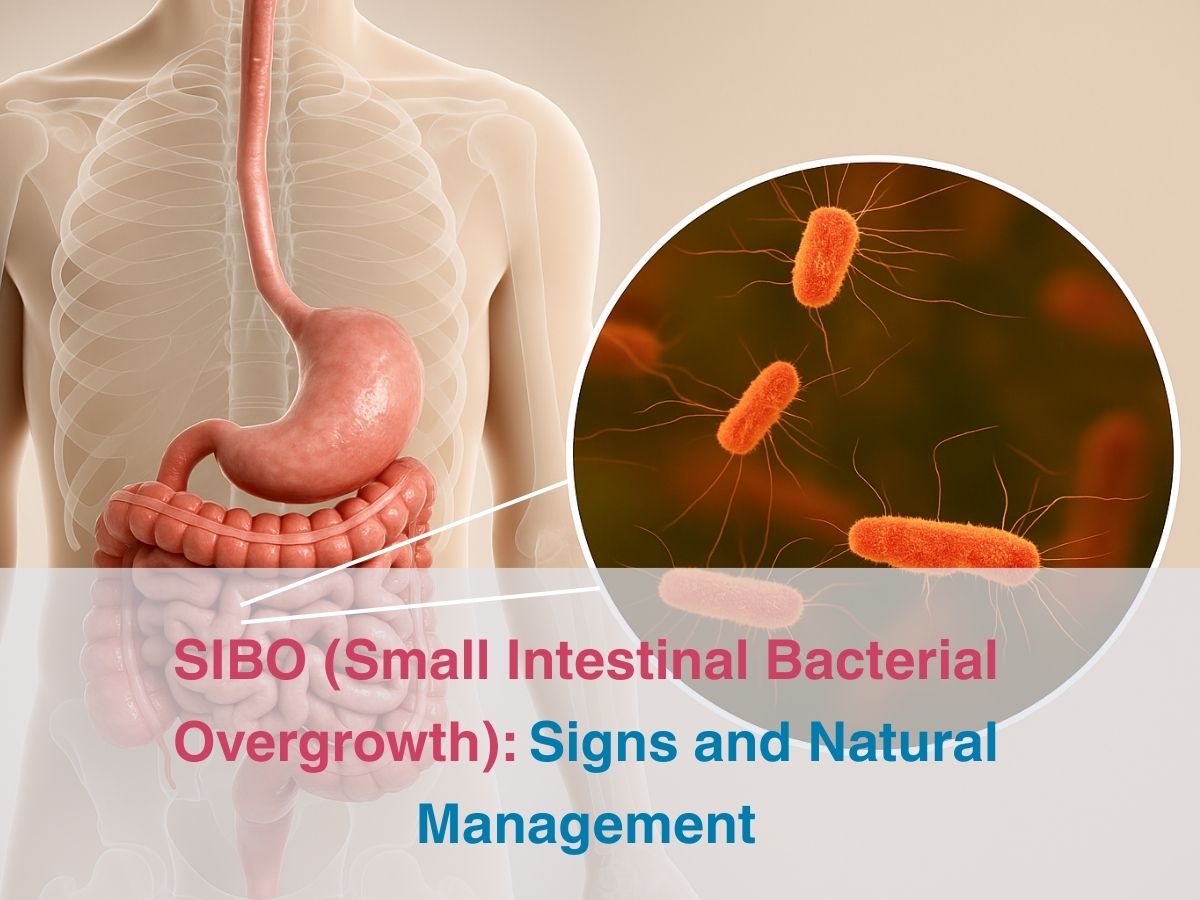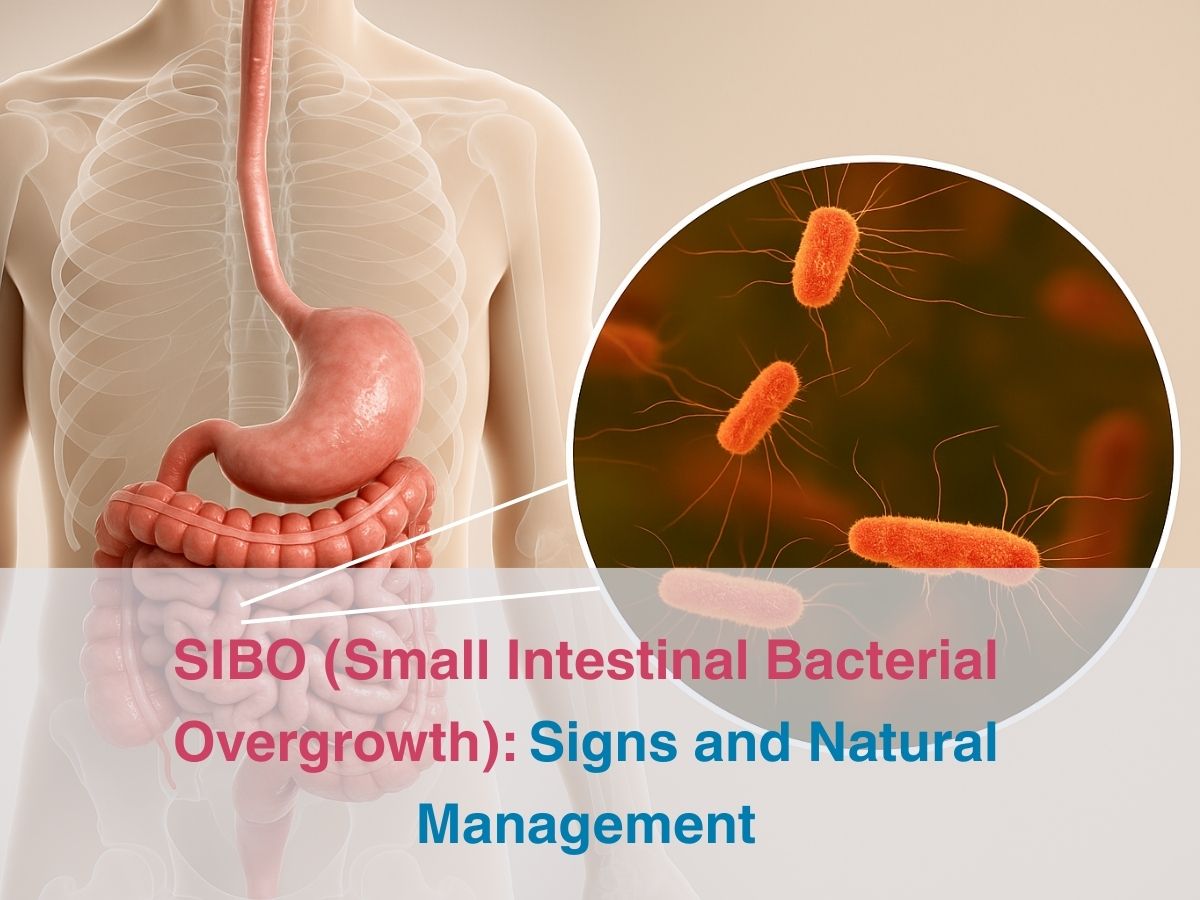
SIBO (Small Intestinal Bacterial Overgrowth): Signs and Natural Management

Small intestinal bacterial overgrowth (SIBO) is a condition where the number of bacteria naturally present in the small intestine can go up disproportionately, with the bad bacteria having a greater presence, when compared to the benign or good ones like the lactic acid ones for example. In normal circumstances, the number of bacteria is pretty high in the large intestine, while presence is much lesser in the small intestine. When there is some issue with how food moves or gets absorbed, it can remain longer in the small intestine, causing more bacteria to grow. This can cause a few unwanted side effects, which need proper management, so you begin to feel better.
Causes and Symptoms of SIBO
SIBO normally occurs only in very rare instances, so let us look at the possible causes in detail, below-
- Abdominal anaesthesia and surgery can cause digestion to slow down, when compared to before, causing SIBO.
- Structural anomalies in the small intestine can also cause this issue – like diverticulosis, small bowel obstructions and abdominal adhesions respectively.
- Low amounts of stomach acid – due to an infection, ulcer or gastric bypass surgery.
- Abuse or overuse of antibiotics- which can cause good bacteria to die and the bad ones to overgrow in their place.
- Movement disorders- if food is not able to move in the right way in the gut due to poor motility of the cells, then food can remain for way too long and ferment, causing SIBO. Hypothyroidism can cause such dysmotility issues.
Symptoms you should know of include
- Nausea
- Abdominal pain
- Diarrhoea
- Unexpected weight loss
- Poor absorption and motility leading to deficiency and malnutrition if left untreated for long.
- Poor appetite and bloating are also common.
SIBO can also change how your poop looks and feels- it may smell a lot worse, may float or feel oily or even be hard and lumpy at times. The human body has multiple mechanisms to keep gut flora in check, but when these checkpoints are lost or missed, overgrowth can occur.
Natural Management Of SIBO In Hyderabad Hospitals
SIBO can be a chronic condition if not managed effectively. Eating the wrong foods can trigger SIBO, so ensuring that you follow the right diet plan is important.
Bad gut flora grows exponentially when you eat processed foods or ones which are rich in sugar- as there is more energy and resources for them to use. Restricting sweet foods and vegetables or fruits, milk and dairy products and some grains can help in providing relief from symptoms. Probiotics can also help in many cases.
Small Intestinal Bacterial Overgrowth Diagnosis In Hyderabad
Getting an accurate SIBO diagnosis involves the use of blood tests, breath tests and stool tests respectively.
- Blood tests- to check for deficiencies caused by poor absorption and
- Stool Test– presence of undigested bile acids and fats in food.
- Breath Test– this non-invasive method checks for the amounts of hydrogen and methane in your breath. Higher values signify SIBO.
- Imaging techniques will also be used to ensure that SIBO is not occurring due to a structural abnormality of the small intestine.
If SIBO is not diagnosed and treated soon, complications can be expected in the long term- like nutritional deficiency, anaemia and poor bone health due to calcium loss and inadequate absorption.
Conclusion
The use of antibiotics to treat SIBO is a standard approach to care and is simple and effective in most cases. But, if SIBO is being caused by other underlying issues, then getting that looked at becomes a priority. Surgical correction of structural issues can help a lot in this regard. While SIBO is treatable, the symptoms don’t go away soon after treatment and planning your diet and effective long term management will take some work and commitment on your part. Talk to our experienced gastroenterologists at KIMS Sunshine- who can diagnose and treat gut disorders in a timely fashion. Call us today!






